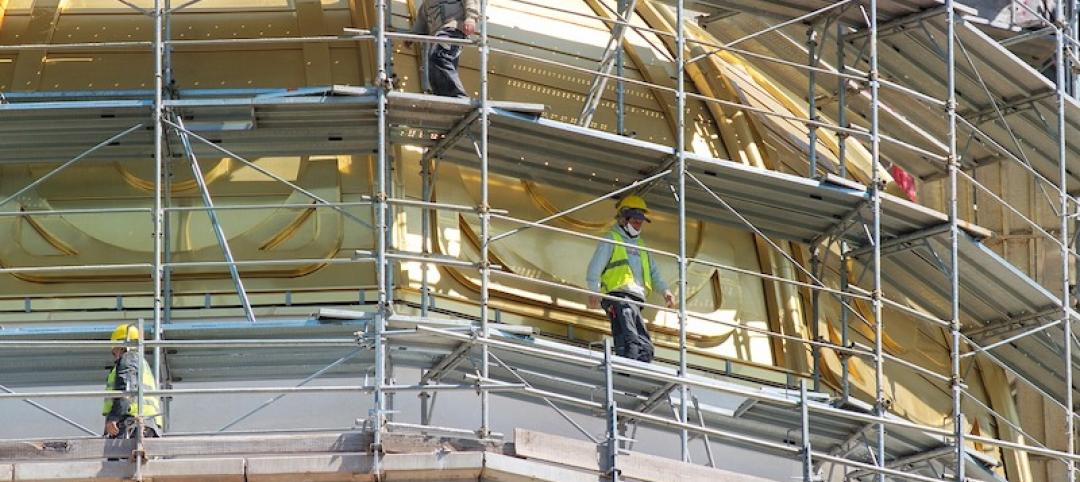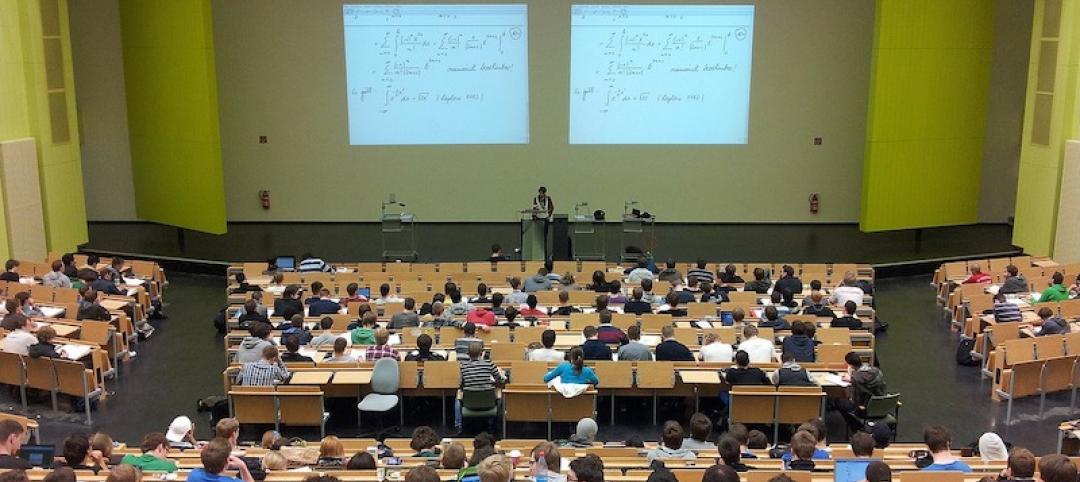Construction firms are experiencing widespread project deferrals and cancellations, along with disruptions to ongoing work and few new project awards, as the economic damage from the pandemic drags down industry employment in metro areas across the nation, according to a new survey and an analysis of new government data that the Associated General Contractors of America released today. Association officials urged Congress to pass new coronavirus relief measures to head off further job losses.
“The survey results make it clear that the months-long pandemic is undermining demand for projects, disrupting vital supply chains and clouding the industry’s outlook,” said Ken Simonson, the association’s chief economist. “Without new federal relief measures, these challenges pose a significant threat to current construction employment levels.”
Simonson noted that three-quarters of survey respondents report having a scheduled project postponed or canceled. He added that is up from the 60% of contractors who reported a canceled project in our August survey and 32% who did so in June. Meanwhile, only 23% of contractors report working on new or expanded construction projects as a result of the pandemic, about the same percentage as in June.
The coronavirus is also disrupting projects that are still underway, Simonson noted. Seventy-eight percent of respondents report they are currently experiencing project delays or disruptions, up from 57% in June. In particular, 42% of firms are experiencing disruptions due to a shortage of construction materials, equipment or parts. In addition, 35% are experiencing disruptions because of a shortage of craftworkers and/or subcontractors. In one bit of good news, however, only 7% of firms are experiencing disruptions because of a shortage of personal protective equipment.
Shrinking demand and disrupted operations are shaking many contractors’ faith in the future, the survey showed. Thirty-four percent of respondents report they do not expect their firm’s volume of business will return to pre-pandemic levels for at least a year.
Delays, disruptions and uncertainty threaten to undermine employment levels in the construction sector. In fact, 30% of firms report they have already furloughed or terminated employees because of the coronavirus.
That is likely why construction employment fell during the past year in most metro areas, Simonson added. Construction employment fell in 234, or 65%, of 358 metro areas between September 2019 and September 2020. Construction employment was stagnant in 38 other metro areas, meanwhile, and only 86 metro areas added construction jobs during the past year.
Houston-The Woodlands-Sugar Land, Texas lost the most construction jobs over those 12 months (-24,400 jobs, -10%), followed by New York City (-19,500 jobs, -12%). Brockton-Bridgewater-Easton, Mass. had the largest percentage decline (-36%, -2,000 jobs), followed by Altoona, Pa. (-32%, -1,000 jobs) and Johnstown, Pa. (-32%, -900 jobs).
Dallas-Plano-Irving, Texas added the most construction jobs from September 2019 to September 2020 (5,100 jobs, 3%), followed by Baltimore-Columbia-Towson, Md. (4,700 jobs, 6%). Walla Walla, Wash. had the highest percentage increase (25%, 300 jobs), followed by Fond du Lac, Wisc. (15%, 500 jobs).
Simonson added that a majority of firms report they plan to cut jobs or abstain from adding new employees during the coming year. Twenty percent expect their headcount will shrink while 42% report they do not plan to add to the size of their headcount during the next twelve months.
Most firms participating in the survey, 78%, cited a preference for new federal relief measures to mitigate against the impacts of the coronavirus. Among the measures firms are hoping Washington officials will enact are new federal investments in infrastructure, liability reforms that protect responsible firms from frivolous coronavirus suits and a new highway and transportation bill.
As a result, association officials urged Congressional leaders to recall legislators right after the election to pass much-needed new coronavirus relief measures. In particular, the construction officials called on Congress to new infrastructure investments, liability reforms and an additional round of Paycheck Protection Program loans.
“As our survey shows, the pandemic and efforts to mitigate its spread have deeply wounded the economy, depressing demand for many types of commercial construction projects,” said Stephen E. Sandherr, the association’s chief executive officer. “Congress can end the downward economic slide and help create needed new construction jobs by passing measures to boost demand and protect honest employers.”
View the survey results. View the metro employment 12-month data, rankings, top 10, and map.
Related Stories
Market Data | Jun 29, 2020
6 must reads for the AEC industry today: June 29, 2020
HQ tower features gardens on every floor and the head of Hilton talks about how his business will survive.
Market Data | Jun 26, 2020
5 must reads for the AEC industry today: June 26, 2020
Restoration of 1930s El Paso hotel completes and Arc offers tools, analytics for safe workplace re-entry.
Market Data | Jun 25, 2020
Commercial Construction Index drops amid Coronavirus pandemic, but contractors poised for near-term recovery
Contractors quickly prioritized worker health and safety, and 1 in 3 plan to hire more workers in the next 6 months.
Market Data | Jun 25, 2020
7 must reads for the AEC industry today: June 25, 2020
CDC to build the most advanced high containment laboratory in the country and architecture billings downward trajectory moderates.
Market Data | Jun 24, 2020
Architecture billings downward trajectory moderates
AIA’s Architecture Billings Index (ABI) score for May was 32.0 compared to 29.5 in April, but still represents a significant decrease in services provided by U.S. architecture firms.
Market Data | Jun 24, 2020
8 must reads for the AEC industry today: June 24, 2020
San Francisco's apartment market goes in reverse and WATG designs a solution for isolating without sacrificing social connectivity.
Market Data | Jun 23, 2020
National survey reveals pandemic's impact on college students' mental health, remote learning, families' income and more
Of 2,500 student respondents, 75% feel more anxious or stressed, 57% said they lost their summer jobs and 90% want to return to campus in the fall.
Market Data | Jun 23, 2020
7 must reads for the AEC industry today: June 23, 2020
Gyms are going bacnkrupt and leaving gaps in shopping centers and how hotels are trying to keep guests and employees safe.
Market Data | Jun 22, 2020
New House infrastructure package will provide needed investments in aging infrastructure, support economic recovery, and create jobs
The Moving Forward Act’s proposed $1.5 trillion in new investments will improve range of public infrastructure, creating needed demand for construction while making the economy more efficient.
Market Data | Jun 22, 2020
7 must reads for the AEC industry today: June 22, 2020
Construction employment rises from April to May in 45 states and the first building in the U.S. designed for post COVID-19 environment.

















